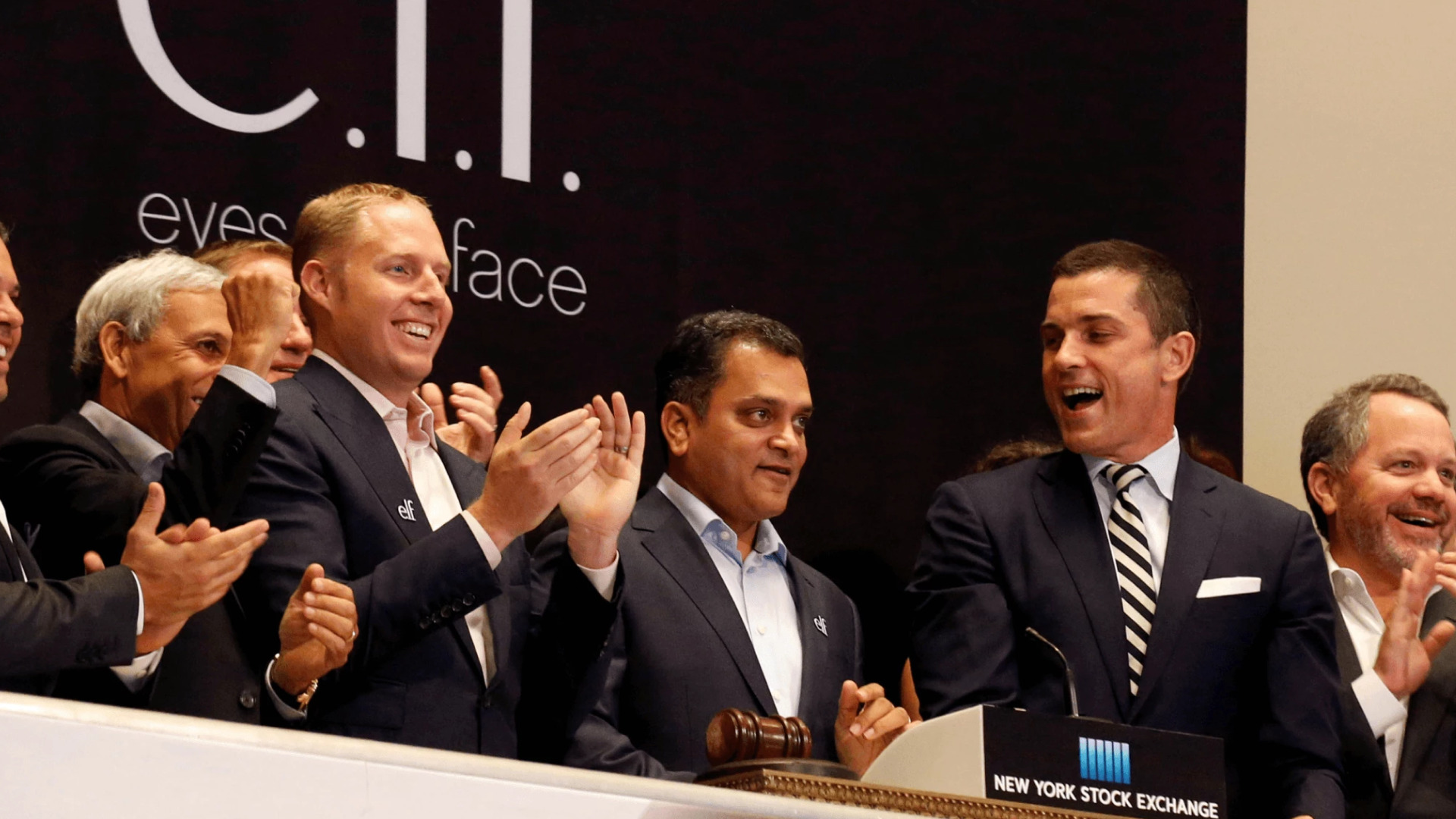How Positive Mentorship Experiences Fueled Tarang Amin’s Quest for Diverse Perspectives
01.28.22
Tarang Amin discovered a long time ago that great advice can be just a phone call away. That is, if you take the initiative.

Tarang Amin discovered a long time ago that great advice can be just a phone call away.
That is, if you take the initiative.
Amin has been the CEO of e.l.f. Beauty Inc. since 2014. In 2015, he became e.l.f.’s chairman, and in 2019 their president. Today, e.l.f. is the leading e-commerce site in mass color cosmetics, with annual revenue in the hundreds of millions.
Early in Amin’s career, when he was at Procter & Gamble (P&G), he was promoted to brand manager of haircare brand Pantene. He wanted to learn the lessons of other P&G brands that experienced great growth phases and apply those in his new role with Pantene.
He called different executives associated with those key brands at P&G and asked if he could get input from them. Their responses surprised him.
“I started just picking up the phone,” Amin said. “At first it can be a little daunting. I was always amazed how no one ever refused to give me advice [and] just how generous they were with their time.”
He refers to those P&G executives as the best mentors he’s had because he was able to build what he perceived to be an authentic connection with them.
Amin said even if you get the occasional rejection or two because someone is too busy, it’s important to keep trying to learn and engage with people – don’t let it hold you back.
His own perseverance helped him increase Pantene’s sales from $50 million to $2 billion over the course of his time with the brand, and he managed to drive exorbitant growth once again as an executive at The Clorox Company from 2022 to 2011. As president and CEO of Schiff Nutrition, a nutritional supplements manufacturer, he grew the company’s value from $190 million to $1.5 billion.
Pushing the Status Quo
Amin’s determination and ingenuity began long before his time at P&G and The Clorox Company – in 1987 to be exact.
After earning a B.A. degree in International Policy from Duke University in 1987, Amin wanted to attend business school there for his M.B.A. But the Dean of Admissions said they required that students have at least a few years of outside work experience after college and Amin didn’t have that.
Amin countered that working in his family’s motel business since he was 14 — with the stakes high since every penny they had was tied up in it — was an equivalent.
“We had no option but to try to make [my family’s business] a success,” he recalls.
Amin’s conviction about his work experience satisfied the Dean and gained him admission. It also demonstrated to Amin that he had “the gumption to be able to challenge the status quo,” he said.
Prioritizing Diversity and Supporting Different Perspectives
Born in East Africa, Amin is of Indian ethnicity. His family immigrated to the United Stateswhen he was a child.
Amin has put a priority on building a diverse, inclusive workforce as a leader at e.l.f. – and he’s delivered in spades. Over 55% of e.l.f.’s workforce are women and almost half the company identifies as an ethnicity other than white. Additionally, e.l.f.’s board of directors has over 55% women and over 20% Black or African American representation – one of only five public companies in the United States that can make such a claim.
“It makes an incredible difference in terms of our perspectives and our results,” Amin said. “I’ve seen firsthand the power of diversity in every business I’ve run over the years…more diverse teams deliver better results.”
Amin puts a premium on making certain those perspectives and ideas are shared with the team. E.l.f. even has a training program on how to give feedback in the moment – and it’s a two-way street. The leadership team gives feedback daily to the workforce rather than conducting annual performance reviews.
“It’s always in the spirit of helping someone succeed,” Amin said.
Using Vulnerability to Drive a Culture of Innovation
Amin says it’s important that leaders show vulnerability to their team.
“People want their leaders to be human beings, and a key part of being human is to also talk about times where you failed or times that you’re struggling,” he said.
The benefit in doing so, he says, is that others open up. “It makes us better because it’s often the things that you miss that weren’t said that causes issues. So the more that everyone feels truly comfortable to be who they are, the better we get from the entire team, including me,” he said.
Channeling the spirit of vulnerability in his quest for innovation, Amin embraces an optimal failure rate for new products. “If we’re not seeing anything that doesn’t work, then we’re probably not pushing the envelope far enough,” he explains.
E.l.f. invites new ideas for products from the entire team and tests them on a smaller scale to learn what works. Then, they expand from there. This process is yet another way Amin has built a culture of inclusivity at e.l.f. It’s built in as a DNA to our overall business model,” he said.
Giving Back Through Mentorship
Amin has been lucky to have had many great mentors who have shaped him, and acknowledges how much generosity it takes for busy executives and leaders to make time to be available to mentees. Stepping in the mentor role today, his own experience inspires him to make time for his own mentees – and in turn receives one added benefit. “Being able to share things that I’ve accumulated over years of experience, but equally importantly, learning from them,” Amin said.
He has even more to share. Explore other great lessons from Tarang Amin in the Global Mentor Network library.
About GMN
The Global Mentor Network (GMN) was founded by Keith Krach, a Silicon Valley tech legend, in 2019. GMN’s mission is to help build the transformational leaders who will shape tomorrow’s world through the power of mentorship at scale.


